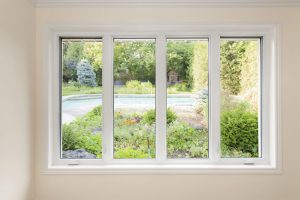
Every year, more and more home designers and engineers recognize the superiority of composites over traditional materials, such as metal, plastic or wood. This is due to the fact that composite materials provide unmatched performance by their individual constituents, and manufacturers are turning to ignoring old materials and methods in favor of composite fabrication. Composites have quickly become a way to achieve high structural performance at affordable production costs.
As far as windows are concerned, they come with a number of different types of insulating frames and glass. By combining a thermally efficient frame with a thermopane glass adapted to the climate, you can customize every existing window in the house. Improving the thermal resistance of a window frame contributes to better overall energy efficiency. Each frame material has its own advantages and disadvantages and some are more resistant than others.
What are composite window frames and what are the reasons that make them a good choice?
Composite window frames are made of composite wood such as timber and laminate. They are super stable and have the same structural and thermal properties as traditional wood frames, with even better resistance to moisture and degradation.
A type of very efficient frames, usually used in passive houses, is composite coated with aluminum. Between composite and metal, there is a free space, and the air in this space is a very good insulator. The advantage of composite window frames coated with metal is their enhanced weather resistance. There is no danger of rotting or impact damage, as in the case of wood frames installed in the wrong climate.
Composite frames combined with plastic are also a great option, but their share is still low. It is estimated, however, that their popularity will increase due to their particular resistance, easy maintenance as well as resemblance to the natural wood (natural wood is still considered by specialists and beneficiaries alike as the most aesthetically pleasing window framing solution).
The pros
Composite materials in the structure of window frames offer many advantages. Here are the most significant:
- High strength and rigidity
- Light weight
- Eco friendliness during the production process
- Increased durability, resistance to frequent use and long life span (are still-new technology, but it is estimated they are strong enough to last up to 30 years)
- Impact resistance
- Increased dimensional stability
- A variety of colors and finishes to choose from
- Good chemical properties, corrosion resistance
- Fire resistance
- High service temperature
- Extreme outdoor environmental resistance
- Low maintenance requirements
- Low thermal conductivity
- Low thermal expansion
- Adapted energy conductivity (e.g., can be used to amplify or absorb vibrations)
- Appropriate insulation
- Relatively low resources consumption for raw material production
- Recyclability – composite materials and aluminum are recyclable, which translates into energy savings and eco-friendliness.
There are really no downsides of composite windows, perhaps except for the cost, however you avoid the cost of window replacement Lincoln contractors do for windows that are not as long lasting. They are at the top end of the price range, being less affordable than the popular PVC windows, but considering all their advantages including lifespan, durability and energy-efficiency, composite windows help you save money in the long run.